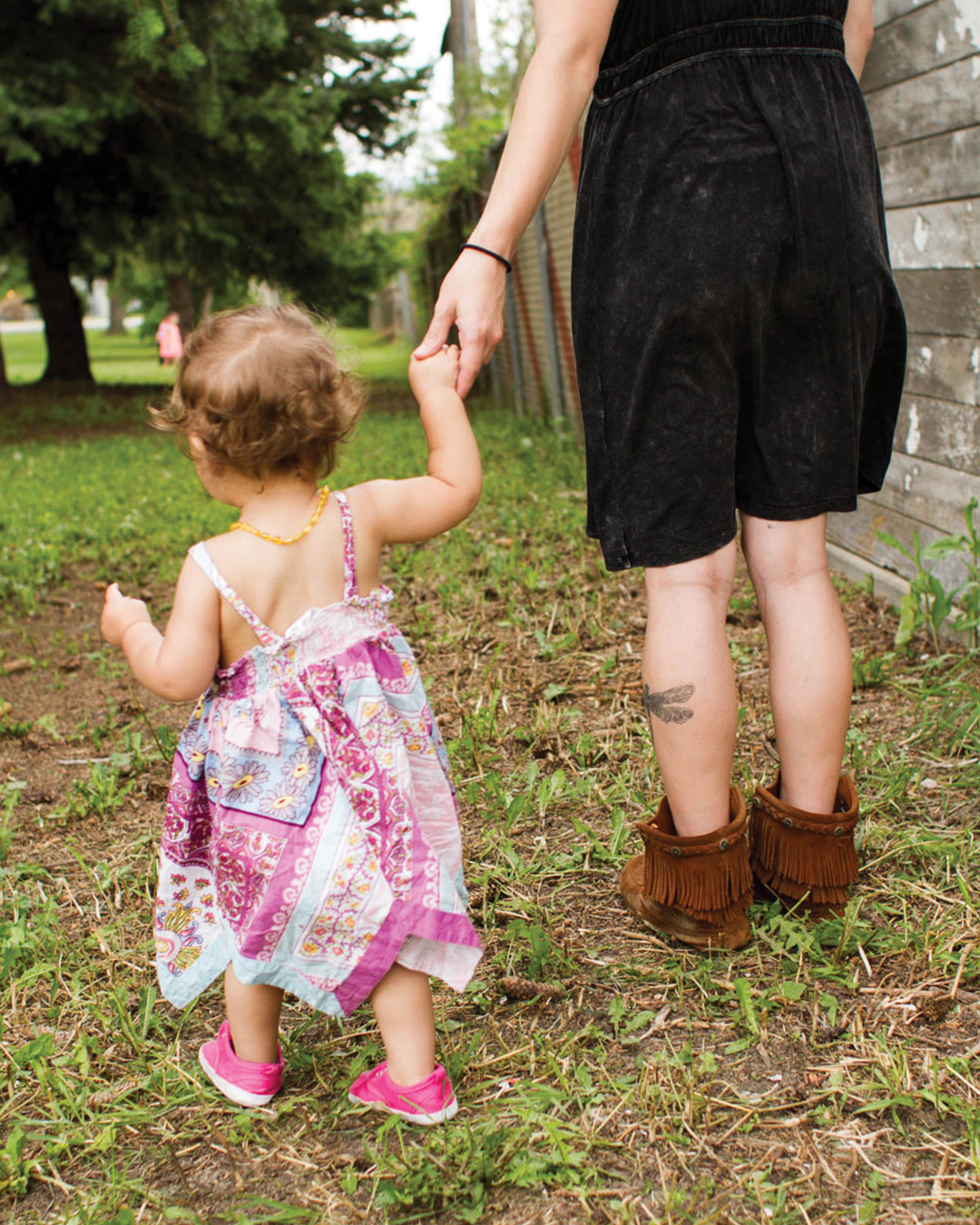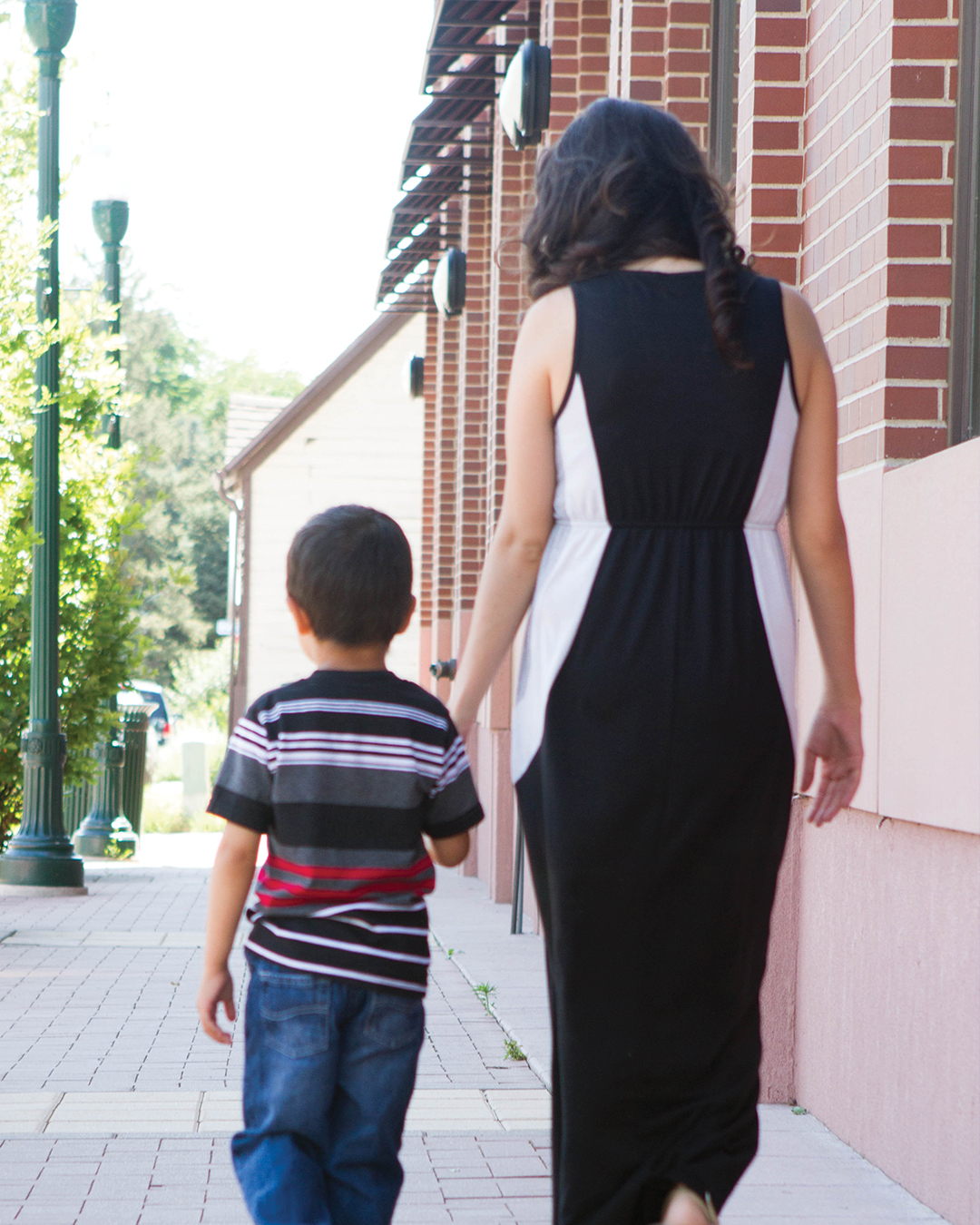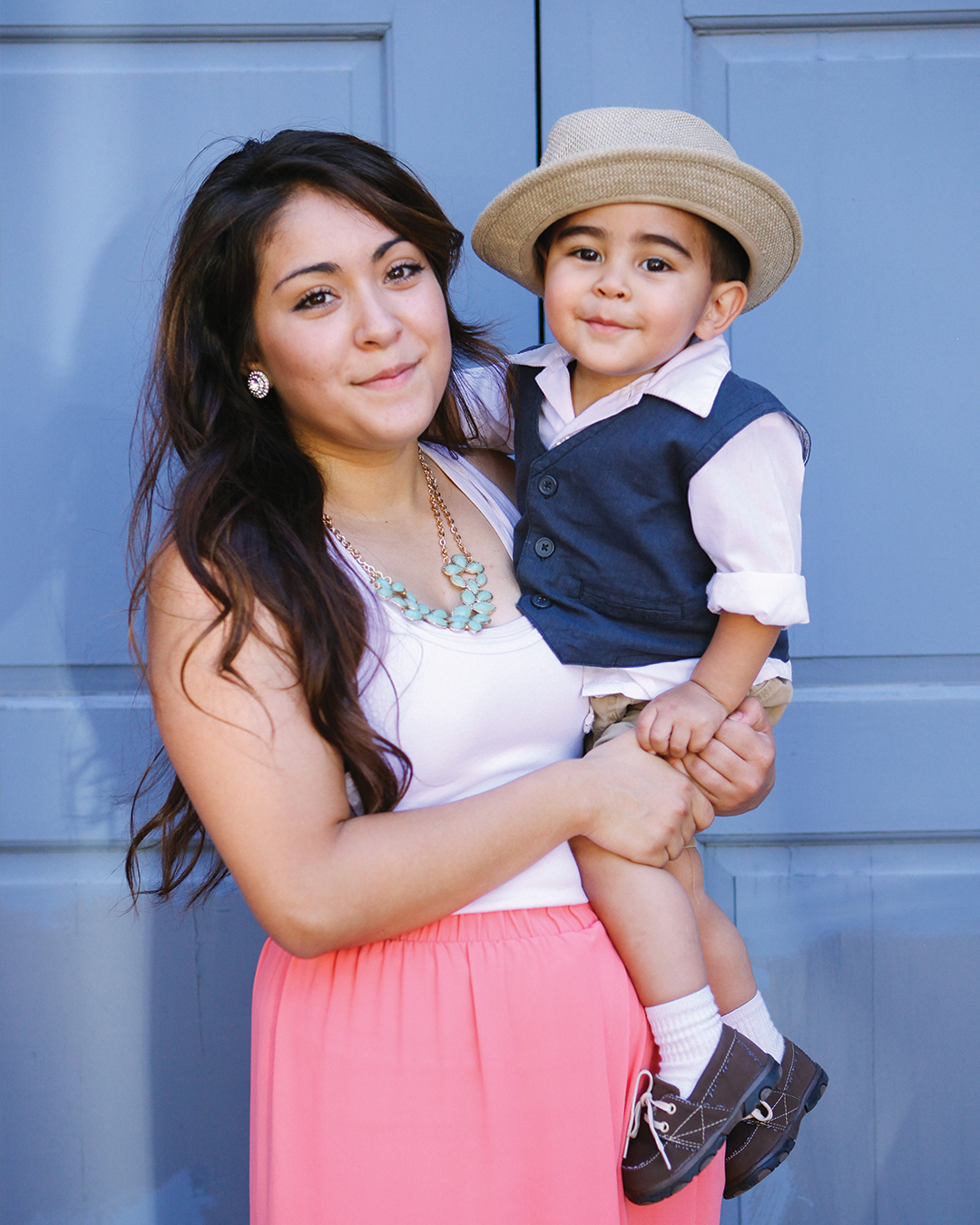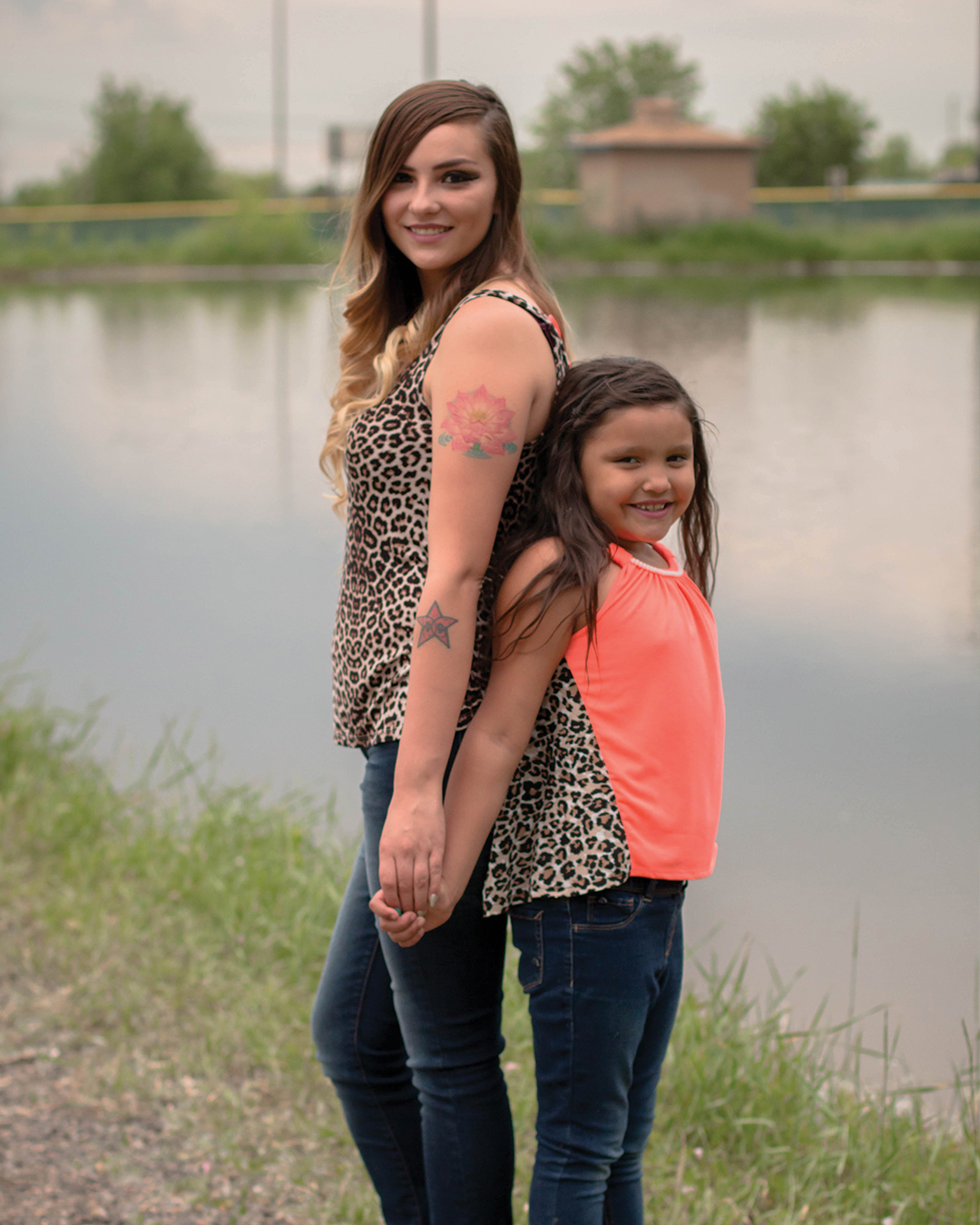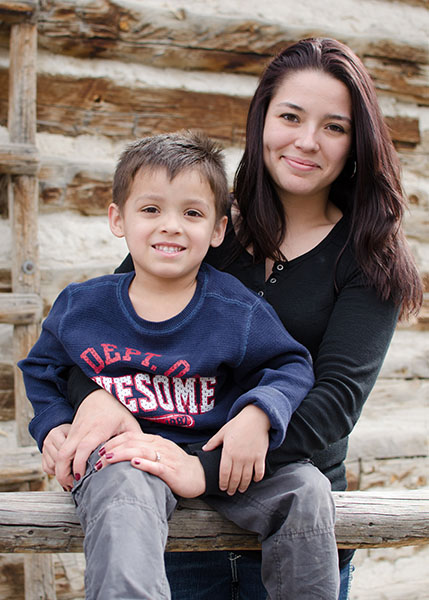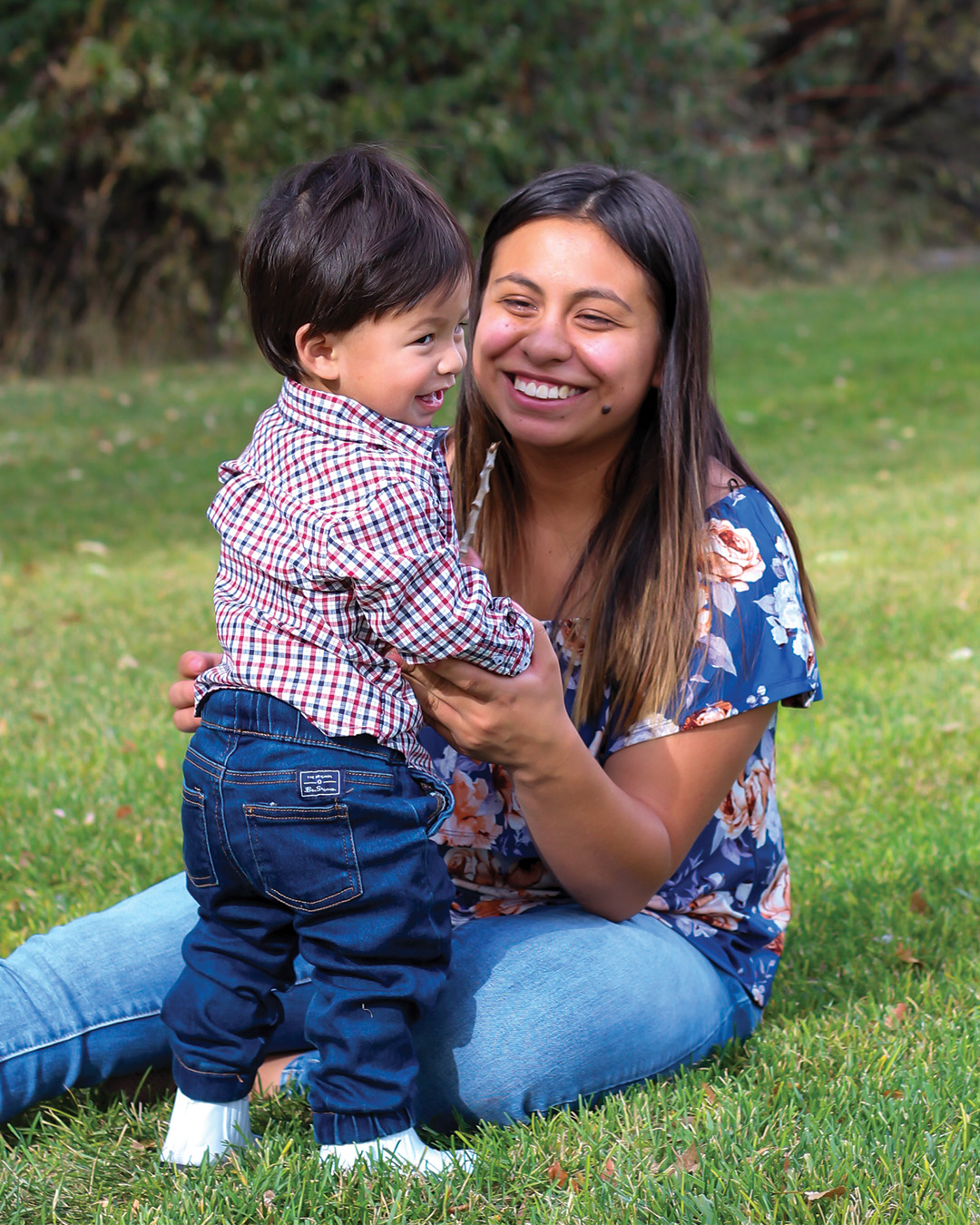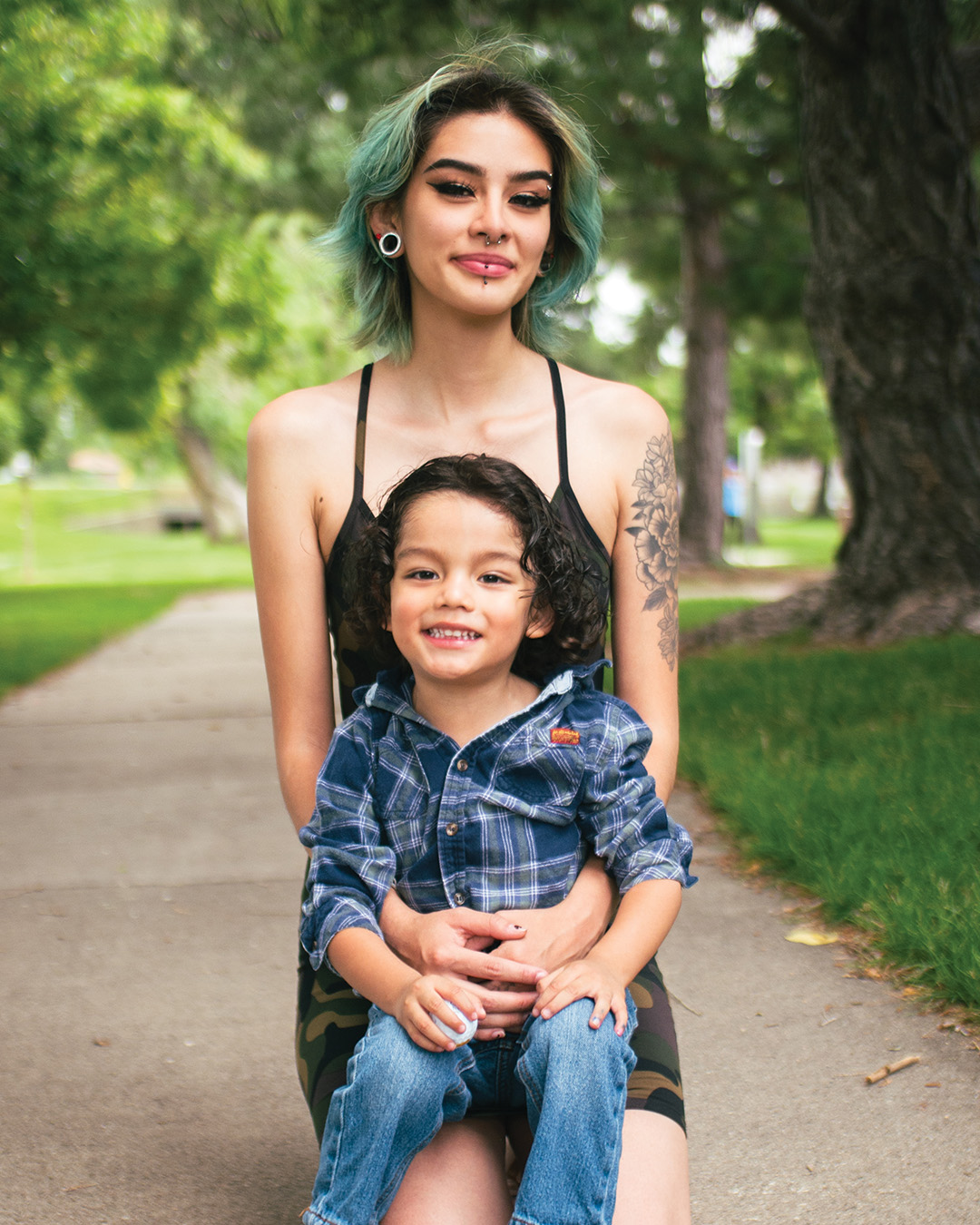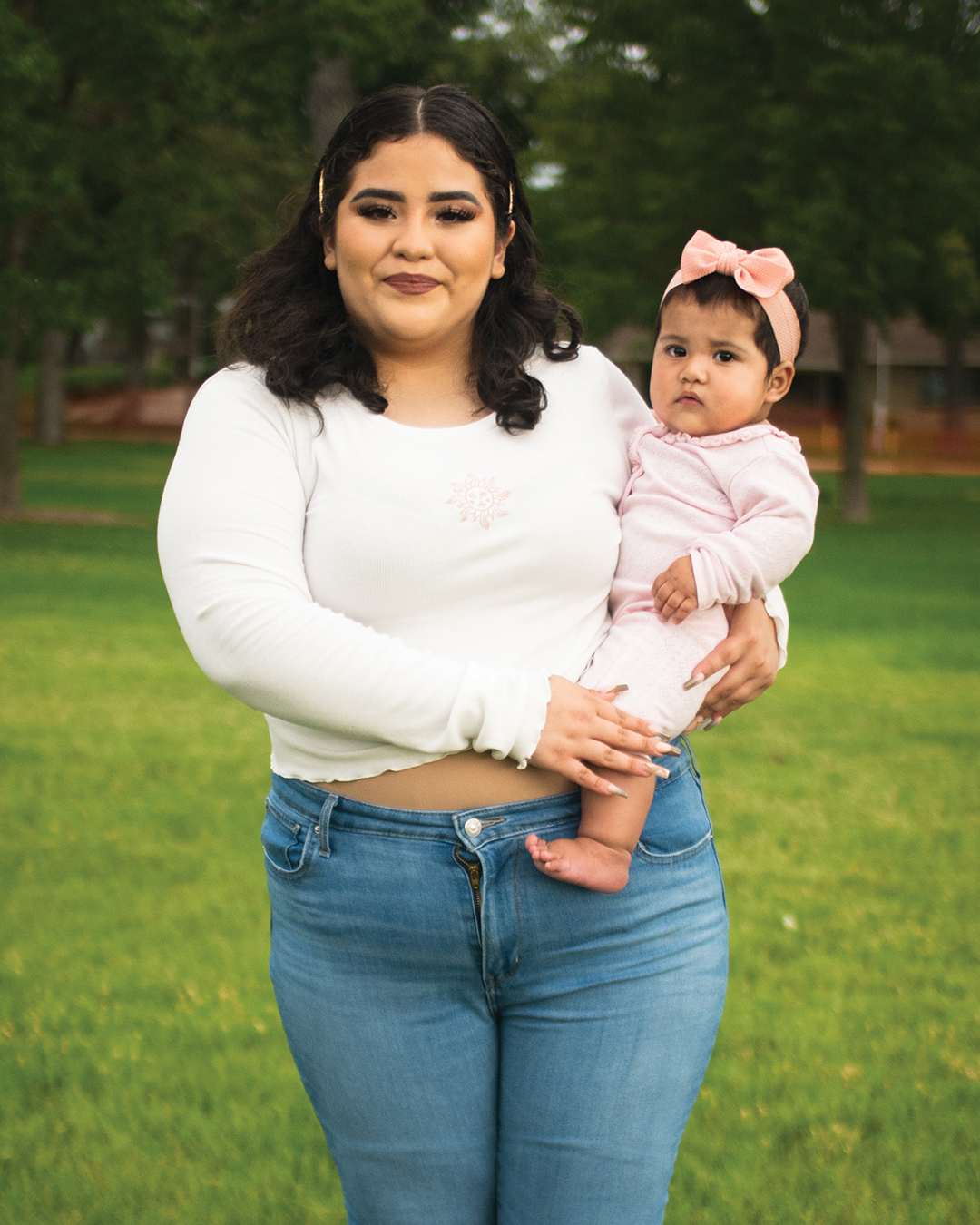Laura Rech, Early Learning Teacher
At six months old, Blake loved connecting with the big people in his life. He made eye contact with every caregiver, offering big juicy smiles and anticipating a smile in return. He was an easy baby to love and enjoy.
His mom, Kyra, is soft spoken and full of gratitude. She never missed thanking me for taking care of her son while she studied and earned her GED. Every Monday evening, Kyra would pick up Blake from the classroom, and I would offer a positive remark such as: “He has the most adorable smile” or “He loved rolling the ball today.”
One evening, when we had a few extra moments (i.e. there wasn’t a hoard of other children demanding attention), I shared that I could see how very loved Blake is because he expects love and kindness from adults.
Kyra paused her packing up and asked, “Really?”
“Absolutely,” I assured her. “He looks to adults with a smile, which tells me he’s accustomed to the adults in his life smiling at him.” Her eyes filled with tears and the week’s “thank you” took on an additional meaning.
It is now roughly two-and-a-half years later; Blake still comes to the Early Learning classroom on Monday evenings so Kyra can do her college coursework. I have the pleasure of watching this smiley baby evolve into a curious and energetic toddler. I have also had the pleasure of supporting Kyra as she crossed the graduation stage to accept her High School diploma and celebrate her as a graduate of our Community Program, indicating her ability to be self-sufficient.
One reflective comment to this young mom served to open a door to a long-term relationship with her.
It can be hard to know how much I have in common with the teen moms, which can impede finding common ground or shared points of interest. It is much simpler for me to connect with the young children who rejoice in the novel experiences of life.
However, loving the child allows me to relate to the mother in a unique way. This is an important connection because society often reacts with judgment toward a teen mom with her child: the pointing, the whispers, the sideways glances, the ‘tsk-tsk’s and ‘she’s so young.’
As an early learning teacher, the child reflects something different to me. He or she is a precious gift entrusted to my care; and the teen is a mother, not a girl who made a mistake. Every mother feels some pride in her child’s growth, learning, and accomplishments. I capitalize on this pride, however large or small it may be, to show I can be an ally.
There is little more rewarding than when a teen mom trusts me enough to share a concern about her child or ask an “is this normal” question. The love and desire she has for her child tears down walls that seem impenetrable to logic and reason.
Beyond genuine love for and interest in the child, there are great resources available to help you to engage with the child’s parents. Below are a few strategies I have found to be powerful bridge builders:
Be positive and specific– “Aiyden was so kind today; he saw that another child was disappointed because a block tower fell down, hugged the upset child, and offered to help rebuild the tower.” This observation allows me to offer a positive characteristic of the child, to gauge how important kindness and helping others is to the mom (based on her level of reaction), and grounds the compliment in specific behaviors.
Be descriptive and share interpretations– “Anthony is fascinated with building! He could not get himself close enough to the tower of blocks, and even though he knocked it over a few times, he was curious rather than destructive.” This allows me to describe the behavior (getting closer to the tower) and my interpretation of his motivation (curiosity instead of destructive).
Focus on the parent-child relationship– “Look at how baby Mia kicks her legs and smiles at you! She loves her mama.” Here I can offer a behavioral observation and its significance, while also supporting the infant/mother relationship. This is especially powerful to offer to moms of non-verbal children who express their love in more subtle ways than a spoken or signed “I love you.”
Ultimately, I view my job as more than caring for the children in the classroom: my job is to support the young family.


